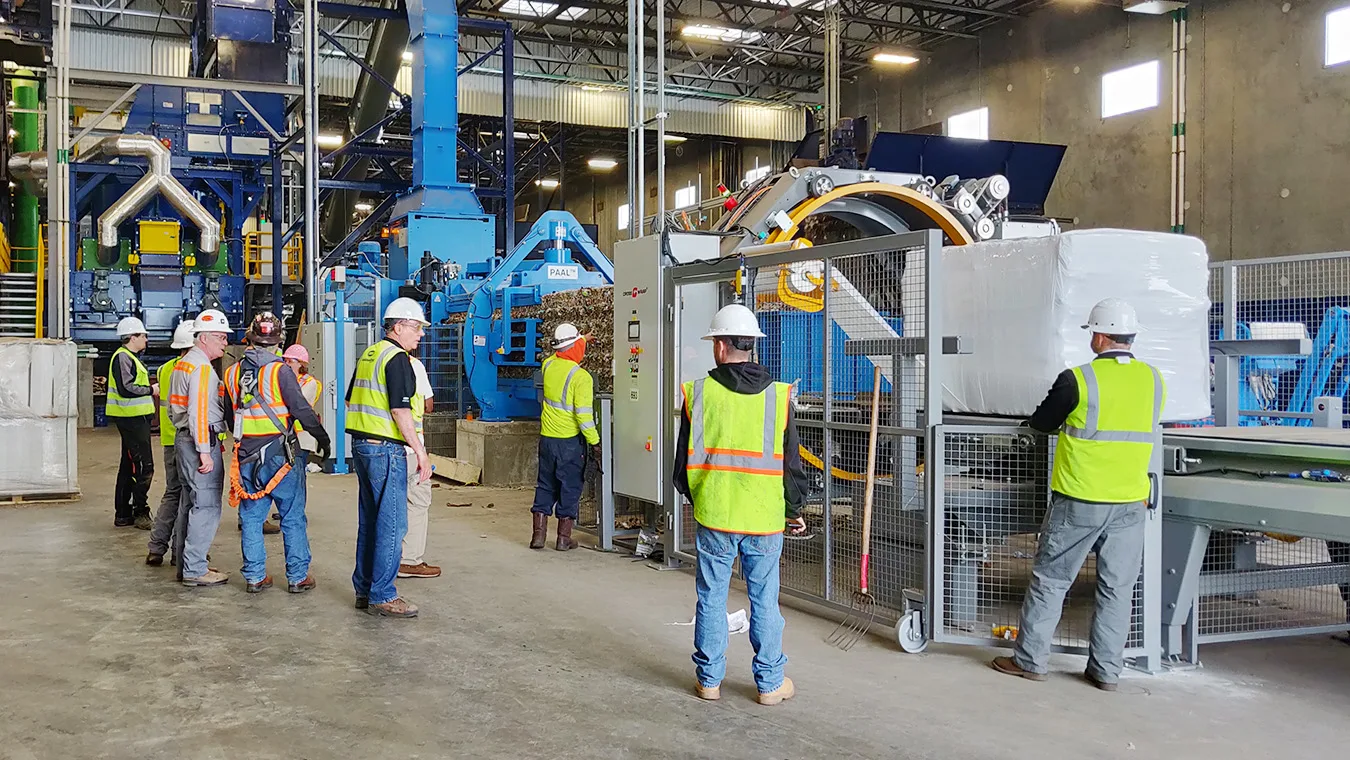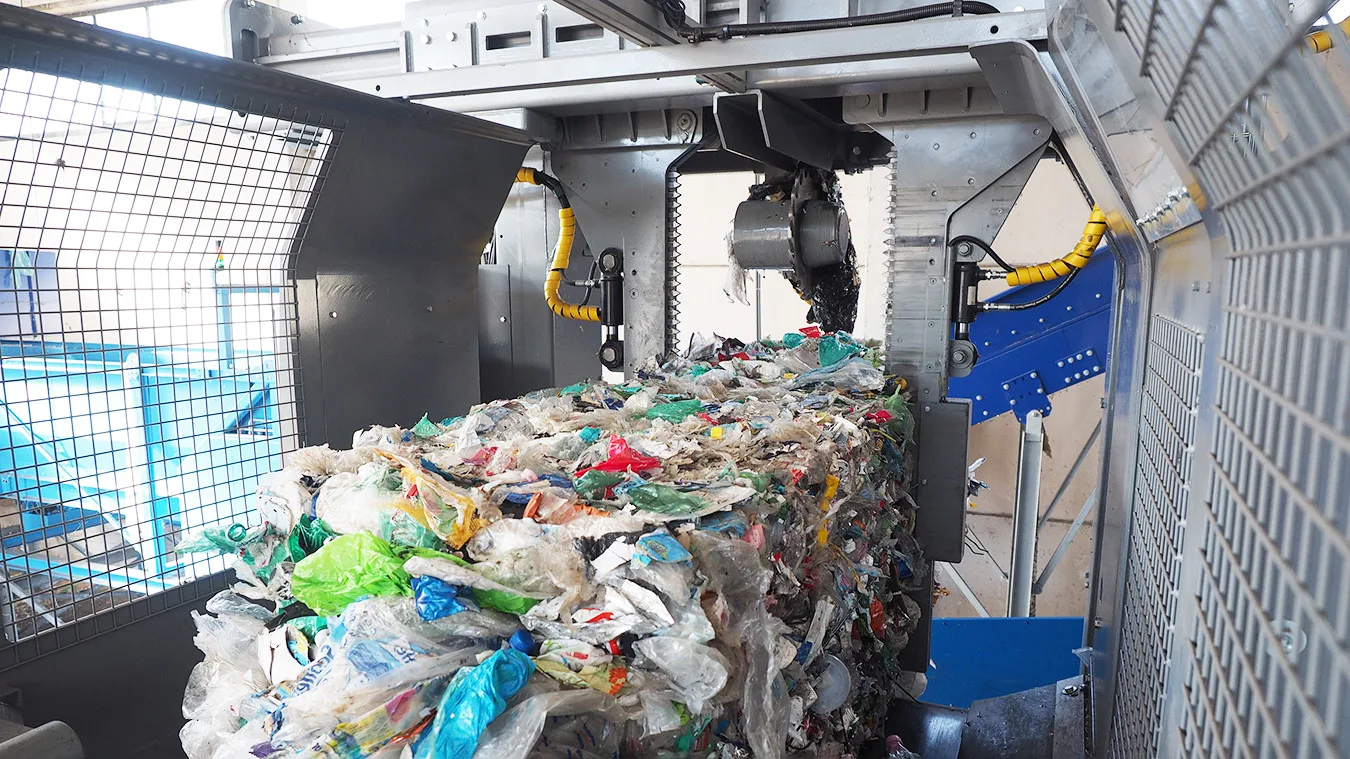Cross WrapSteps to implement machine vision
HiQ helped Cross Wrap design the plan and data architecture to implement machine vision.


Founded in 1994, Cross Wrap designs and manufactures bale wrapping and opening machines for processing waste and recycling materials. The company from Siilinjärvi has customers in 65 countries, where it is known for its technology and high-level service. Cross Wrap’s machines help optimize industrial processes companies to improve productivity, safety, sustainability, customer satisfaction, and overall profitability.
The growth strategy of Cross Wrap includes product lifecycle services and offering new features that generate added value for current customers. In addition, the company aims to increase its market shares in key markets and develop its data-oriented services.
Objective: Automating industrial processes with machine vision
Cross Wrap wanted to automate its customers’ various industrial processes with waste and recycling materials and was looking for a partner to utilize machine vision. Machine vision can be used to identify the qualities of materials, which makes processes more efficient, improves service quality and eliminates manual work steps. The new service was born out of the needs of existing customers and complements Cross Wrap’s range of services as a machine manufacturer.
“Machine vision solutions are already common in our field, but in general they are utilized in the middle of the processes, removing faulty material. However, our customers have come to expect identification at the beginning and end, which is what we focus on. By recognizing the quality of the plastic right from the start, material flow can be automated and the quality of the process improves”, he describes Laura Leskinen, Cross Wrap’s Business Development Director.

Machine intelligence can identify the quality of the material already at the beginning of the process, which reduces equipment wear and tear. For example, if there is among the plastic large impurities, the impure material damages the next machine. At the same time, the price of the process increases and the quality suffers.
“Our customers are, for example, paper mills, waste recyclers, and plastic recyclers. It is important for them to recognize the quality of the material, as it also affects the costs of the process and helps with transparent pricing,” says Leskinen.
Solution: Workshop to clarify ideas and to determine architecture and milestones
Cross Wrap was looking for a partner for the development of machine vision-based process automation. HiQ distinguished itself from competition by focusing on defining the problem in more detail before offering a solution. Typically, various innovation sessions and workshops at the beginning of the project help to ensure that the chosen direction is the right one.
“We were looking for a partner our needs implementation, and HiQ was the only one that offered a workshop at the beginning to clarify our ideas before the actual bidding process”, says Leskinen.
Cross Wrap’s data architecture is based on the Azure integration platform, which moves data between ERP, CRM and product management systems, for example. The whole includes an automation system that controls the machines, including machine vision and cameras being integrated. Cross Wrap has taken advantage machine vision platform that makes an AI model. On top of this, the company has developed its own program that categorizes materials in the customer’s environment and feeds them to the AI model. The first results in the customer pilots have been obtained quickly.
In the workshop carried out by HiQ, the initial situation was analyzed with the aim of determining architecture and milestones for implementing machine vision. The experts were HiQ’s experienced solution designer and technical architect. In the workshop, different options were discussed for how machine vision could be integrated into the machine. The key areas were secure data export to the cloud, the challenges posed by customers’ different operating environments, and Azure’s machine vision services. As a result of the workshop, it was concluded that the existing customer pilots should be taken further before building the data architecture.

“When helping our customers, we always strive to ensure that our solution genuinely adds value to the customer. Especially if it suddenly sounds like the problem can be solved in several different ways, it’s worth stopping and thinking. By breaking down the challenge into smaller parts and prioritizing the milestones, large total savings can be gained,” says Jenni Hyvärinen, HiQ’s Account Executive.
Results: A high-level roadmap makes planning and the bidding process easier
Thanks to the workshop, it is easier for Cross Wrap to plan the progress of its project and the bidding process for choosing a partner. The cooperation felt easy and effortless from the start.
“HiQ helped us create a high-level road map and break down different areas into smaller ones. Now we know what to do first. One of the most significant aspects of the workshop was HiQ’s presentation of Azure’s ready-made services for machine vision. We didn’t know that there were such convenient ways to test the machine vision model, which helped us promote our pilots,” says Leskinen.
Cross Wrap praises HiQ’s unusual way of working because instead of a direct solution proposal, they offered an opportunity to increase understanding of their own needs. In this way, the business risks associated with a large investment could be reduced already in the early stages of the project.
“This is a new business for us, which we want to do partly with our own resources. However, we are mechanical engineers, so our main expertise is not how to build the flow of data to the cloud while taking information security into account. The data architecture must also take into account the customers’ different needs and operating environments because one solution does not work for everyone”, reflects Leskinen.
HiQ’s Jenni Hyvärinen thanks Cross Wrap for the inspiring cooperation.
“It has been exciting to be able to help an international company utilize machine vision and artificial intelligence as part of its service solution for its customers. Improving the efficiency of waste sorting affects our everyday lives as consumers, and with this project, we were able to contribute to the topic in industrial processes as well”, says Hyvärinen.

